5 Fun Preschool Math Activities
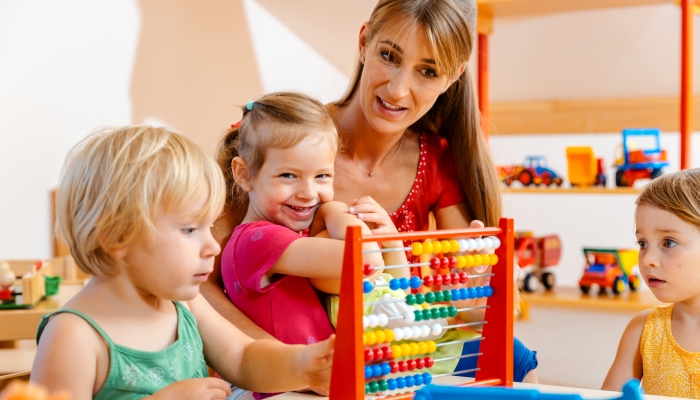
- Learning basic math skills will help prepare your child for school by teaching them number recognition, counting skills, and how to complete activities.
- Preschoolers can learn number and symbol recognition, counting, sorting, basic measuring, comparing differences, one-to-one correspondence, and identifying patterns.
- Make math part of your daily routine! Encourage counting during daily activities or point out numbers on signs.
If you’re preparing your child for school, you’re probably trying to figure out what you need to teach them before they head out the door in the fall. While you may be focusing on personal and social skills, you can also work on academic skills. No, that doesn’t mean teaching your toddler to understand Shakespeare; it simply means working on basic skills they can use at school!
At school, your child will focus on reading, writing, and math. You can give them a helping hand by encouraging early math skills. There are lots of easy and fun preschool math activities you can do at home. You won’t have to spend hours setting them up or spend lots of money on them; in fact, you can teach your toddler preschool math concepts without spending a penny.
Preschool Math Activities: What Parents Need to Know
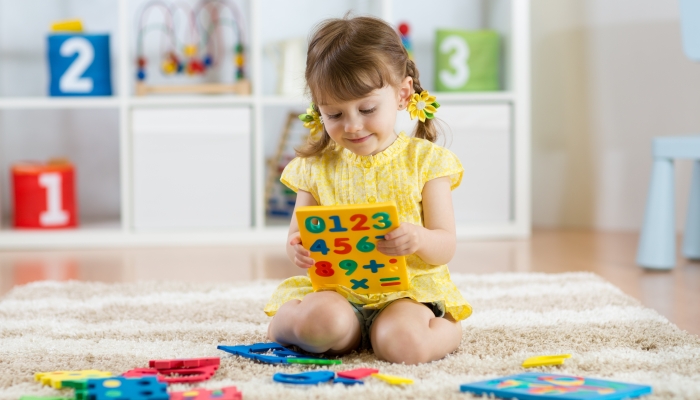
Though the idea of teaching your preschooler math may seem daunting, it’s nothing to worry about. You don’t need to dust off your scientific calculator just yet; preschool math is as easy as 1, 2, 3.
Basic math concepts are super easy to incorporate into everyday life. There are simple things you can do to impart your mathematical wisdom to your offspring. Count things aloud throughout your day, like the pairs of socks you fold, the sheep you see in the field, or the grapes your toddler eats during snack time.
Basic math skills are the foundation blocks for formal math, and helping your child to learn these skills now could build their confidence and make them ready for the classroom. It’s important to keep learning fun. Children learn through hands-on play, so you want to find engaging ways to teach these skills. Forget about workbooks; fun preschool math activities are the best way to introduce basic math skills.
5 Math Activities Preschoolers Will Enjoy
Luckily for you, preschoolers love doing the same thing over and over again. So, if you find some preschool math tasks they like, you can bet they’ll spend plenty of time learning math skills.
Here are some fun preschool math activities for preschoolers:
1. Roll and Gather
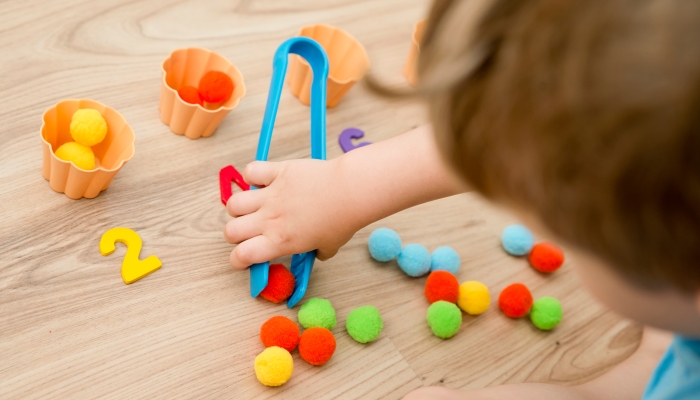
Roll and Gather is a fun math game that’s great for developing fine motor skills. All you need is a number die (you can use a regular six-sided or a fancy ten-sided math die if you want to show off), a color die, and something to gather. You can use pom poms, tiny toys, building blocks, threading beads, or whatever you have on hand.
Roll the number die and the color die to find out what you need to gather, for example, “three red beads.” Collect your winnings; then it’s the next person’s turn. Keep going until all the objects are gone. To further improve fine motor skills, you can use a grabber or tweezers to collect the items and place them in a containter instead of simply using your hands.
2. Playdoh Shape Matching
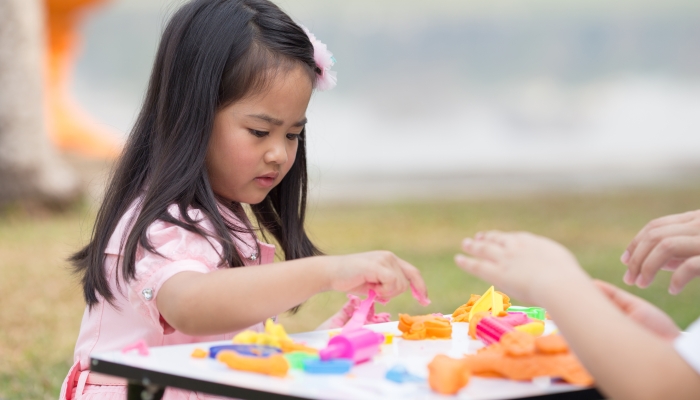
Tactile activities are excellent for preschoolers who love getting their hands messy. Children love to squeeze, smell, and shape playdoh, so this activity is bound to be a hit. You’ll need lots of cookie cutters in different geometric shapes and cards with each of those shapes drawn on (you can do this yourself by tracing the cookie cutters with marker pen). Ask your preschooler to find the right cutter and make a playdoh shape to correspond with each card.
This activity is a great way to learn shape recognition, but you can use it to teach numbers, too, if you have some number cutters. You’ll notice your child identifying shapes in other places once they’ve mastered this game. Playdoh is a fun way to develop fine motor skills and enjoy some sensory play.
3. Complete the Picture
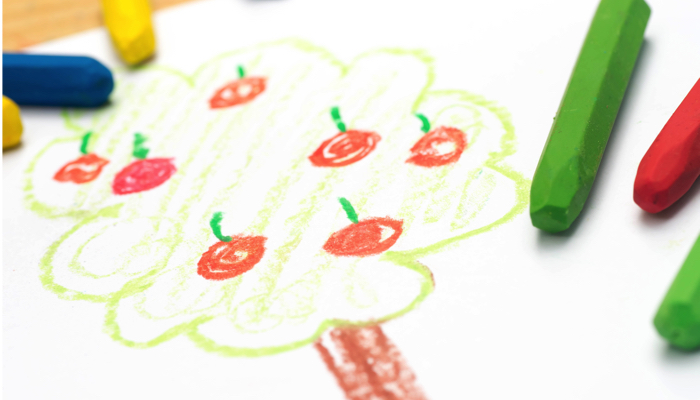
Complete the Picture is a fun game to practice counting skills with your kindergartener. The incomplete pictures need your preschooler to finish them off. This might be a tree in need of apples, a ladybug missing her spots, or a birthday cake without any candles; it’s up to you. Show your child how many items they need to add by drawing a big number on the sheet and help them recognize the number symbol. Then count up the missing items to add to the picture.
There are lots of different variations on this game, so you can play it again and again. This game is brilliant for creative kids who love arts and crafts. You can even mix it up and play while baking (how many chocolate chips does each cookie need) or playing in the sandpit (how many flags does each sandcastle need). Get creative, and this game will provide hours of entertainment.
4. Nature Scavenger Hunt

You don’t have to be sitting at a desk to learn math; in fact, children can learn in all environments. Hands-on math activities are a fantastic way to practice counting with your child. Next time you’re out on a walk with your kid, throw in a nature scavenger hunt to mix things up. You don’t need any special materials, so you can do it whenever the mood strikes. If, however, you have some chalk, you can draw numbers on the sidewalk to add an extra element of learning to the game. Ask your child to fetch, for example, three pine cones, two leaves, or one stick.
Not only is this game great for developing counting skills; it will also give your kid a chance to develop their gross motor skills as they race about trying to find the items. It’s also a great way to teach your child about the natural world and explore nature together. Even young preschoolers will enjoy gathering pebbles, flowers, and fallen leaves.
5. What Comes Next?
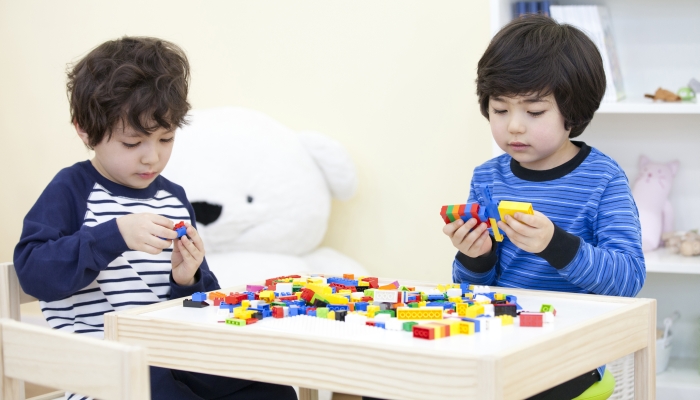
This simple game teaches your child to recognize and complete patterns. You can play it with any colored objects, from LEGO bricks to candies, stickers to beads. Start off with a simple pattern (for example, red, yellow, red, yellow, red) and see if your preschooler can figure out what comes next. As your child improves at the game, you can make the patterns more complicated by including more colors.
Why Are Math Skills Important in Early Childhood Development?
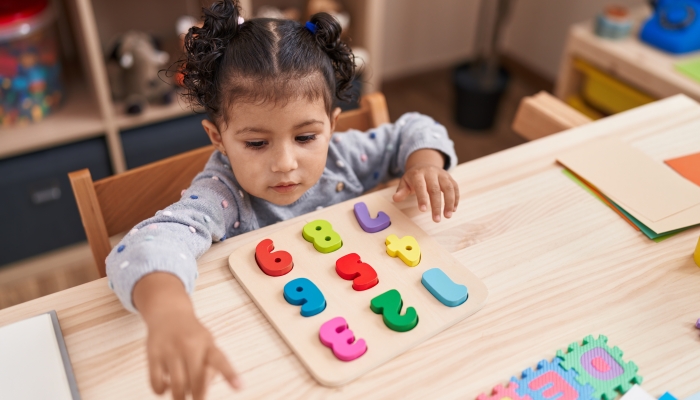
Math skills are critical during early childhood because we use math so frequently throughout the day. Math is all around us, and we are constantly counting, noticing patterns, and measuring things up. By teaching your child these skills early, you will improve their confidence when they tackle math in the classroom. Problem-solving skills are vital for math but also play an important part in other areas of life too, so math is a great way to teach children this crucial life skill.
A Harvard University study11. Nature Publishing Group. Maths games give preschoolers an intuitive boost. Nature News. 2017. https://www.nature.com/articles/d41586-017-01193-6 of 1,500 children in over 200 under-resourced preschools in Delhi found that math games helped children develop intuitive math skills similar to those expected in primary school children. By playing math games, the children learned about number words and symbols, while the control group showed no noticeable improvement. The games, however, did not boost the children’s formal mathematical skills.
How to Boost Your Preschooler’s Math Skills
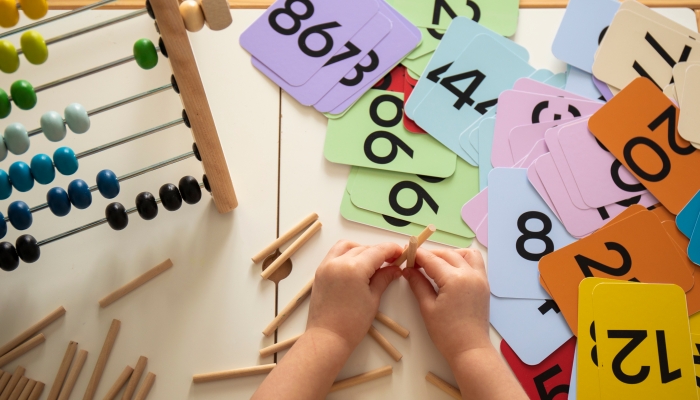
The best way to boost your preschooler’s math knowledge is to include math practice in your daily life. Not by scheduling workbook time but by looking for opportunities to do math as you go about your day.
Encourage your child to count the fruit in the fruit bowl when they’re grabbing a banana for breakfast. Teach them how to recognize numbers so they can let you know when your bus arrives. Have them look for patterns by pairing socks as you sort the laundry. There are so many opportunities to introduce math activities in everyday life.
There are lots of math games you can play, from board games to simple do-it-yourself math activities. The most important thing is to choose engaging math activities that keep math fun and don’t feel like hard work. You want to build your child’s confidence when it comes to math and encourage them to develop a love of math. The best way to teach children is to make it fun, so don’t aim for a formal lesson, instead focus on fun games for hands-on math learning.
References
- Nature Publishing Group. (2017, July 7). Maths games give preschoolers an intuitive boost. Nature News. https://www.nature.com/articles/d41586-017-01193-6
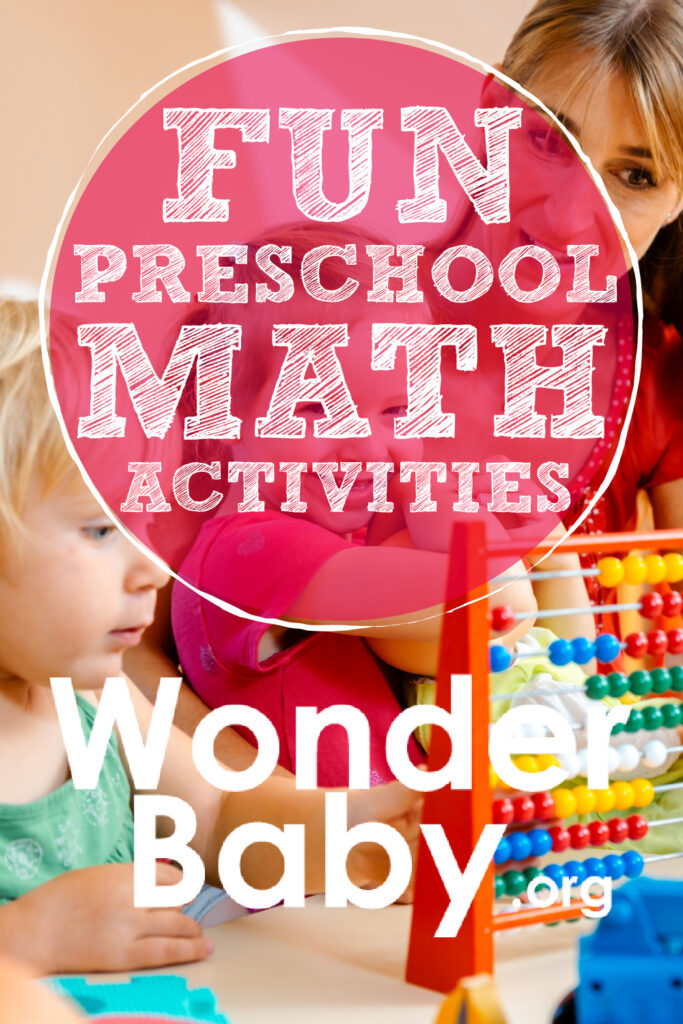
Related Posts

IEPs
What Should I Bring to My Child’s First IEP Meeting?
Prepare for your child's first IEP meeting with confidence! Discover exactly what documents to bring, including educational records, medical info, and questions to ask.
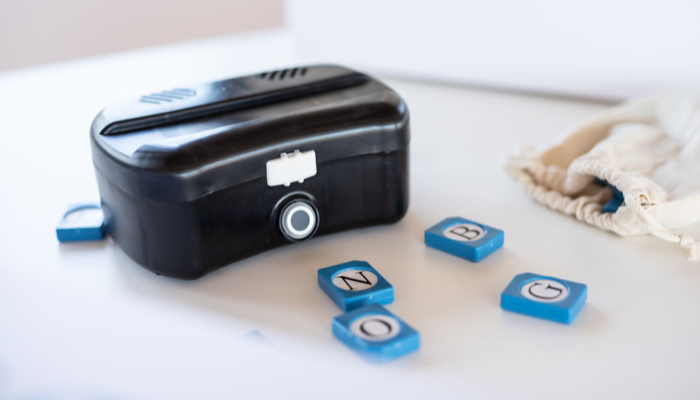
Braille and Literacy
Making Braille Fun: Introducing Handi Exceller’s Innovative Learning Tools for Blind Students
Handi Exceller was born from a simple idea: learning braille should be both fun and accessible. The company creates interactive and gamified ways to teach braille.
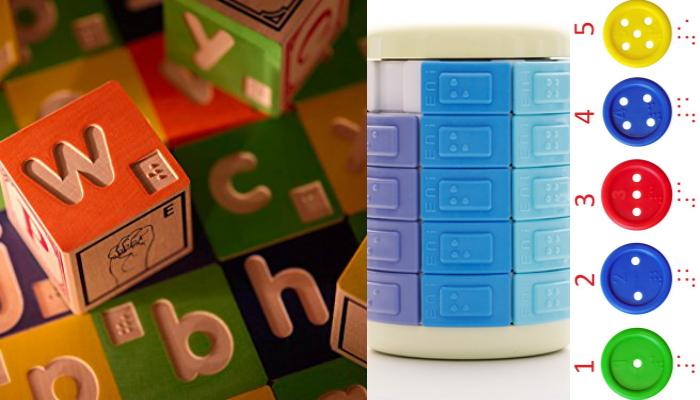
Braille and Literacy, Toys, Visual Impairment
24 Braille Toys for Kids Who are Blind
Everything from alphabet blocks to raised line coloring pages and activity books to puzzles to card and board games... and so much more! And it's all in braille ready for...